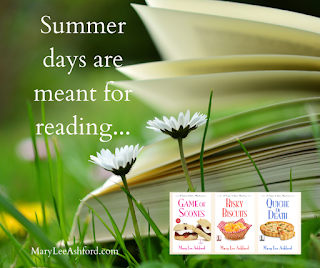Detective Parrott Mystery Series by Saralyn Richard
My introduction to Brandywine Valley, Pennsylvania, was at a weekend retreat in one of the country mansions there. I was invited to a birthday party for one of the elite one-percenters who owned a gentleman’s farm. The thirteen guests were treated to three days of luxurious meals and accommodations, fit for royalty. That Saturday night we enjoyed a gourmet nine-course meal with wine pairings for each course. It was over the top, but tasteful at the same time. The conversation was intelligent and witty, and everyone had a wonderful time, especially the birthday celebrant, who beamed at his friends and family members the entire time.

After the elaborate dinner on Saturday night, our bellies and spirits equally full, we sat around near the fireplace in the den and talked about many things. The gathering reminded me of an Agatha Christie locked room mystery, where someone died, and the rest of the guests were suspects. I was struck by the idea that this would be the last place you’d expect a murder to occur. I turned to the person next to me and said, “This would be the perfect setting for a murder mystery.”
From that moment on, I wanted to write about these rich and powerful people, this setting, and the elements of social class that distinguish the ultra-wealthy from those who serve them. That was the beginning of MURDER IN THE ONE PERCENT.
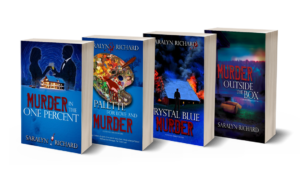
Since that time, I’ve traveled all over the country, talking about Brandywine Valley. The Detective Parrott mystery series has become popular, and it’s grown from a single mystery to four, the latest of which is being released January 5, 2024, MURDER OUTSIDE THE BOX. In each of the books, Detective Parrott learns and grows, while his cases intertwine with his real life.
The series, along with two standalone novels set in less opulent environments, has won numerous awards, favorable reviews, and loyal fans. I’ve conducted extensive research on various aspects of the Brandywine community, and I’ve acquired many first-hand sources who are happy to fill me in on details about the topography, history, architecture, artistry, equestrian activities, artistic endeavors, gardens, museums, shopping areas, bank barns, funeral customs, wildlife conservancy, and other aspects of the community.
The area has turned out to be a second home for me and a favorite escape for my readers. I love the less posh settings of my other books, too, but that long-ago birthday celebration in Brandywine Valley has turned out to be a seminal event in my writing life, and my fascination with the Brandywine culture continues to grow.
Do you have a favorite setting, either fictional or real, that holds you with its magic? Tell me about it!
IT’S A MATTER OF BIRTH AND DEATH.
The serene Brandywine Valley wakes up to an intoxicating double shock: a baby abandoned on the porch of a caretaker’s cottage, and a young post-partum woman lying dead on the estate of a billionaire scotch whiskey magnate. Detective Parrott’s instincts tell him the two crimes are connected, but the evidence points him in directions that are both baffling and personal. Parrott searches for answers in high and low places, including his own office. As he races to find the truth about the baby’s origin and best placement, he untangles chilling murder clues that implicate people who harbor secrets that even their positions of power and trust can’t protect. Once again, Parrott may have to risk his reputation—and even his life—to uncover the real story.
A compulsive and compelling police procedural with relatable characters who remain in your heart. If you like detectives from Louisa Scarr, Clare Mackintosh, and Michael Connelly, you’ll love Detective Oliver Parrott. Purchase at your favorite bookstore or here.
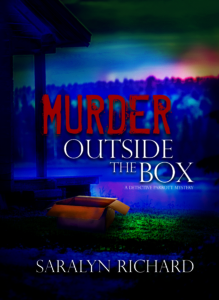

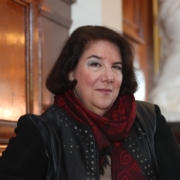
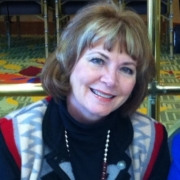 Dear Readers: I’m slowly but surely recovering from 2023! So much progress. I’m still grieving, but my mother’s estate is settled and I can see the floor to my office. I realized it was my day to blog on The Stiletto Gang so I pulled up an article I wrote in 2016. Funny, the position I took back then is the same position I hold today. After reading, please tell me what you think. Do you avoid prologues, and how much time do you devote to marketing? ~ Donnell
Dear Readers: I’m slowly but surely recovering from 2023! So much progress. I’m still grieving, but my mother’s estate is settled and I can see the floor to my office. I realized it was my day to blog on The Stiletto Gang so I pulled up an article I wrote in 2016. Funny, the position I took back then is the same position I hold today. After reading, please tell me what you think. Do you avoid prologues, and how much time do you devote to marketing? ~ Donnell 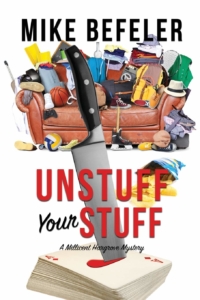 About UNSTUFF YOUR STUFF:
About UNSTUFF YOUR STUFF: 

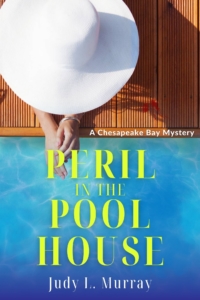 Two much appreciated recent reviews give you a taste of Peril in the Pool House: “The grand opening of Captain’s Watch Bed and Breakfast in one of Chesapeake Bay’s historic mansions, is ruined when the body of Kerry Lightner, a high-powered political campaign manager, is found in the pool house with fishing shears in her back. Is the killer a rival politician, an ex-lover, a jealous co-worker, or the ghost of missing harbor pilot Isaac Hollowell? When state senate candidate and B&B owner Eliot Davies becomes the prime suspect, his friend real estate agent-turned-amateur-investigator Helen Morrisey and her Detection Club of fictional women sleuths vow to solve the case—even if it means the end of Helen’s romance with Detective Joe McAlister. Peril in the Pool House, the third in Judy L. Murray’s award-winning Chesapeake Bay Mystery Series is smart, fast-paced, beautifully written, and utterly charming. Five stars!”Connie Berry, USA Today Best-Selling Author of the Kate Hamilton Mysteries
Two much appreciated recent reviews give you a taste of Peril in the Pool House: “The grand opening of Captain’s Watch Bed and Breakfast in one of Chesapeake Bay’s historic mansions, is ruined when the body of Kerry Lightner, a high-powered political campaign manager, is found in the pool house with fishing shears in her back. Is the killer a rival politician, an ex-lover, a jealous co-worker, or the ghost of missing harbor pilot Isaac Hollowell? When state senate candidate and B&B owner Eliot Davies becomes the prime suspect, his friend real estate agent-turned-amateur-investigator Helen Morrisey and her Detection Club of fictional women sleuths vow to solve the case—even if it means the end of Helen’s romance with Detective Joe McAlister. Peril in the Pool House, the third in Judy L. Murray’s award-winning Chesapeake Bay Mystery Series is smart, fast-paced, beautifully written, and utterly charming. Five stars!”Connie Berry, USA Today Best-Selling Author of the Kate Hamilton Mysteries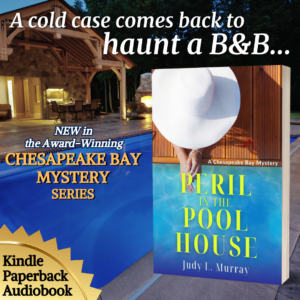 “Cozy mystery fans will delight in following Maryland realtor Helen Morrisey as she solves a double murder with the assistance of the vintage detectives populating her imagination.” Lucy Burdette, USA Today Best-Selling Author Key West Food Critics Mysteries.
“Cozy mystery fans will delight in following Maryland realtor Helen Morrisey as she solves a double murder with the assistance of the vintage detectives populating her imagination.” Lucy Burdette, USA Today Best-Selling Author Key West Food Critics Mysteries.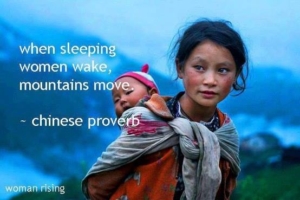 ¡AY, QUÉ LÀSTIMA! by Linda Rodriguez
¡AY, QUÉ LÀSTIMA! by Linda Rodriguez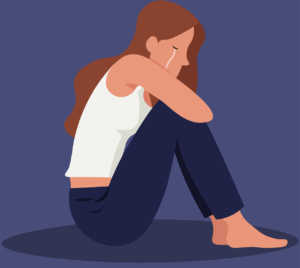 By Lois Winston
By Lois Winston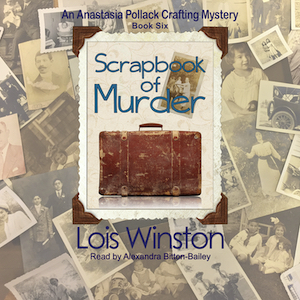 Scrapbook of Murder, the sixth book in my Anastasia Pollack Crafting Mystery Series, is now available as an audiobook. Post a comment for a chance to win a promo code for a free download.
Scrapbook of Murder, the sixth book in my Anastasia Pollack Crafting Mystery Series, is now available as an audiobook. Post a comment for a chance to win a promo code for a free download.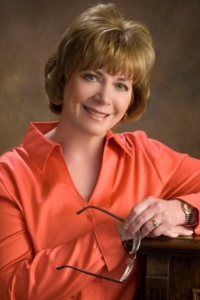 by Donnell Ann Bell
by Donnell Ann Bell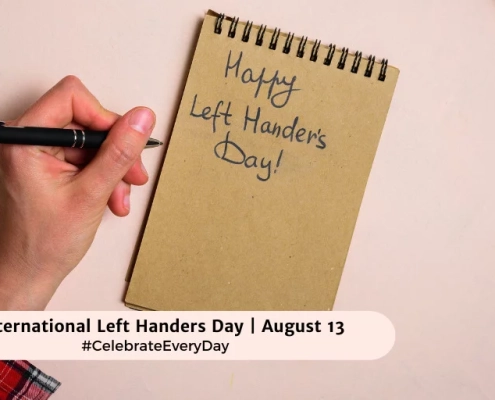 Of all the things we’ve discriminated against, I found discriminating against left-handed people the most absurd. And yet we did.
Of all the things we’ve discriminated against, I found discriminating against left-handed people the most absurd. And yet we did.
 Summers and reading are forever linked in my memories. I grew up in a small town and in a time of school consolidation and so that school I attended was in a larger town eight miles away. So while my friends were headed to the pool or getting together at the downtown soda fountain, I was home alone. My parents owned a small business, my siblings are much older so no one at home to hang out with. But thankfully I had books and endless summer days. Granted once I was old enough to drive some of that changed but by that time I’d already learned the magic of traveling to different places and different times via the pages of a book.
Summers and reading are forever linked in my memories. I grew up in a small town and in a time of school consolidation and so that school I attended was in a larger town eight miles away. So while my friends were headed to the pool or getting together at the downtown soda fountain, I was home alone. My parents owned a small business, my siblings are much older so no one at home to hang out with. But thankfully I had books and endless summer days. Granted once I was old enough to drive some of that changed but by that time I’d already learned the magic of traveling to different places and different times via the pages of a book.
